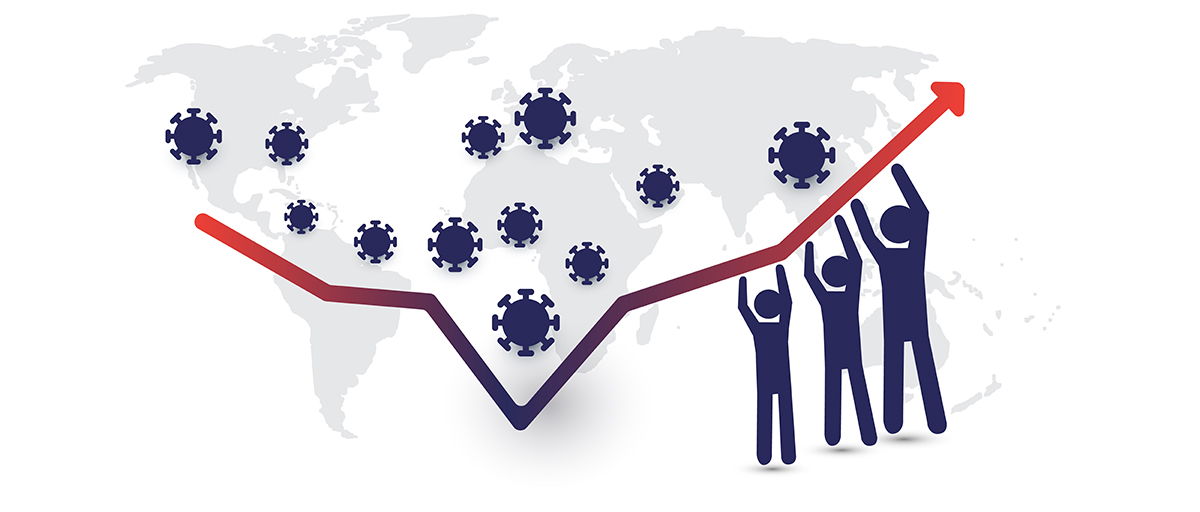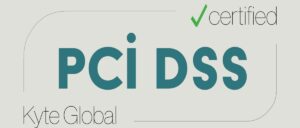Jean Boivin, Head of BlackRock Investment Institute together with, Elga Bartsch, Head of Macro Research, Mike Pyle, Global Chief Investment Strategist for APAC and Nicholas Fawcett, Member of the Economic and Markets Research group all part of the BlackRock Investment Institute share their insights on global economy, markets and geopolitics. Their views are theirs alone and are not intended to be construed as investment advice.
Global economic activity is being frozen to stem the coronavirus pandemic. Yet implications for asset prices will depend on the cumulative impact of the growth shortfall over time. BlackRock believe that policy actions to cushion the impact of virus shock are nothing short of a revolution. Execution is a risk, but if successful, the cumulative impact of the virus should be well below that seen in the wake of the 2008 global financial crisis (GFC) — despite the historic scale of the initial shock.

Sources: BlackRock Investment Institute, with data from Refinitiv and IMF, April 2020. Notes: We show the estimated cumulative shortfall of GDP in the U.S. and euro area as a share of 2019 GDP levels as implied by the median (green dots) and most pessimistic forecasts (yellow bars) in a Reuters poll of 41 forecast for the U.S. and 29 for the euro area, published on 22 April 2020. The red financial crisis bars show the total shortfall accumulated between 2008Q3-2019Q4, expressed as a share of 2007 GDP. There is no guarantee that any forecasts made will come to pass. These hypothetical scenarios are subject to significant limitations given the uncertainties surrounding the virus outbreak.
A banking crisis and overextended household balance sheets led to a “lost decade” of deleveraging after the GFC. This time, the immediate shock is much deeper, but the financial system is not in crisis for the moment. The propagation of the shock is directly linked to the evolution of the virus and the duration of containment measures, in our view. Long-run economic forecasts, including the most pessimistic, imply economic consequences that are much less severe than the post-GFC impact in both the U.S. and euro area, as the chart shows. The cumulative GDP shortfall in the years that followed was ultimately equivalent to 50% of 2007 GDP in the U.S. For the current shock to be on a similar scale, it would have to morph into a financial crisis, in our view. For now, we see the much swifter and greater fiscal and monetary response this time stemming this risk.
The pandemic has triggered an abrupt, deliberate stop to economic activity. We believe the concept of “recession” doesn’t’ apply here because this is not resulting from the evolution of a usual business cycle. See details in how large is the coronavirus macro shock? The current shock is more akin to a large-scale natural disaster that severely disrupts near-term activity, but eventually results in an economic recovery. The large and immediate loss of income needs to be addressed with a comprehensive policy response, including a new suite of policy measures designed to help bridge cash flow pressures by backstopping household incomes and small businesses – without which the economy could suffer permanent damage. We have seen these measures – both monetary and fiscal – coming together quickly and on unprecedented scale, especially in key developed economies. Policy coordination is critical, as we wrote in time for policy to go direct.
A key risk to our view is policy execution. A recent example shows the difficulty of delivering the aid to those in need: A $350 billion loan program for distressed small businesses in the U.S. quickly reached its limit, with evidence that the smallest businesses had severe difficulty accessing the program. There is also the risk of permanent damage if the freezing of economic activity lasts for an extended period of time – especially if ongoing policy support loses momentum. An extended interruption could morph into a financial crisis if it were to lead to an unprecedented wave of corporate insolvencies, putting pressure on the banking system. Last week’s oil price collapse – partly caused by the ongoing drop in demand caused by the economic contraction – illustrates the outsized near-term knock-on effects of halting economic activity.
Bottom line: The initial risk asset response in 2020 – with equities down 30-40% across the world – has been on an order of magnitude similar to the financial crisis. We see the lasting impact of the current economic shock as less severe given much greater fiscal and monetary support this time around. Yet effective implementation of such policy support is critical, and we remain cautious over a tactical horizon due to the substantial near-term uncertainty on the evolution of the virus and containment measures.
Market Updates

Past performance is not a reliable indicator of current or future results. It is not possible to invest directly in an index. Sources: BlackRock Investment Institute, with data from Refinitiv Datastream, April 2020. Notes: The two ends of the bars show the lowest and highest returns versus the end of 2019, and the dots represent year-to-date returns. Emerging market (EM), high yield and global corporate investment grade (IG) returns are denominated in U.S. dollars, and the rest in local currencies. Indexes or prices used are: spot Brent crude, MSCI USA Index, the ICE U.S. Dollar Index (DXY), MSCI Europe Index, Bank of America Merrill Lynch Global Broad Corporate Index, Bank of America Merrill Lynch Global High Yield Index, Datastream 10-year benchmark government bond (U.S. , German and Italy), MSCI Emerging Markets Index, spot gold and J.P. Morgan EMBI index.
Fiscal and monetary policy action to bridge the economic impact of the coronavirus has taken shape – and now the key is policy execution to ensure households and businesses get the cash being promised. Oil prices crashed last week amid plunging demand and a surging demand for oil storage, dragging down other risk assets such as stocks. The U.S. launched an additional $484 billion relief package, including a $321 billion top-up of its funding for small businesses. That takes the fiscal support passed by Congress to nearly $3 trillion in the past two months.
Week Ahead
- Tuesday: U.S. consumer confidence
- Wednesday: U.S. preliminary Q1 GDP, Federal Reserve rate decision
- Thursday: China official purchasing managers’ index (PMI); euro area flash GDP, European Central Bank rate decision
- Friday: Manufacturing PMI for Japan and the U.S.
This week’s U.S. consumer confidence data will be in focus. Consumers have tended to play a stabilizing role during past economic downturns. Many of the social distancing measures to contain the pandemic specifically target consumers’ activities, such as dining out and shopping. Consensus estimates point to the consumer confidence index plunging to a four-year low.
BlackRock’s Key risks & Disclaimers:
This material is not intended to be relied upon as a forecast, research or investment advice, and is not a recommendation, offer or solicitation to buy or sell any securities or to adopt any investment strategy. The opinions expressed are as of April 27, 2020 and may change. The information and opinions are derived from proprietary and non-proprietary sources deemed by BlackRock to be reliable, are not necessarily all-inclusive and are not guaranteed as to accuracy. As such, no warranty of accuracy or reliability is given and no responsibility arising in any other way for errors and omissions (including responsibility to any person by reason of negligence) is accepted by BlackRock, its officers, employees or agents. This material may contain ’forward looking’ information that is not purely historical in nature. Such information may include, among other things, projections and forecasts. There is no guarantee that any forecasts made will come to pass. Reliance upon information in this material is at the sole discretion of the reader.
The information provided here is neither tax nor legal advice. Investors should speak to their tax professional for specific information regarding their tax situation. Investment involves risk including possible loss of principal. International investing involves risks, including risks related to foreign currency, limited liquidity, less government regulation, and the possibility of substantial volatility due to adverse political, economic or other developments. These risks are often heightened for investments in emerging/developing markets or smaller capital markets.
Issued by BlackRock Investment Management (UK) Limited, authorized and regulated by the Financial Conduct Authority. Registered office: 12 Throgmorton Avenue, London, EC2N 2DL
MeDirect Disclaimers:
This information has been accurately reproduced, as received from BlackRock Investment Management (UK) Limited. No information has been omitted which would render the reproduced information inaccurate or misleading. This information is being distributed by MeDirect Bank (Malta) plc to its customers. The information contained in this document is for general information purposes only and is not intended to provide legal or other professional advice nor does it commit MeDirect Bank (Malta) plc to any obligation whatsoever. The information available in this document is not intended to be a suggestion, recommendation or solicitation to buy, hold or sell, any securities and is not guaranteed as to accuracy or completeness.
The financial instruments discussed in the document may not be suitable for all investors and investors must make their own informed decisions and seek their own advice regarding the appropriateness of investing in financial instruments or implementing strategies discussed herein.
If you invest in this product you may lose some or all of the money you invest. The value of your investment may go down as well as up. A commission or sales fee may be charged at the time of the initial purchase for an investment and may be deducted from the invested amount therefore lowering the size of your investment. Any income you get from this investment may go down as well as up. This product may be affected by changes in currency exchange rate movements thereby affecting your investment return therefrom. The performance figures quoted refer to the past and past performance is not a guarantee of future performance or a reliable guide to future performance. Any decision to invest in a mutual fund should always be based upon the details contained in the Prospectus and Key Investor Information Document (KIID), which may be obtained from MeDirect Bank (Malta) plc.





